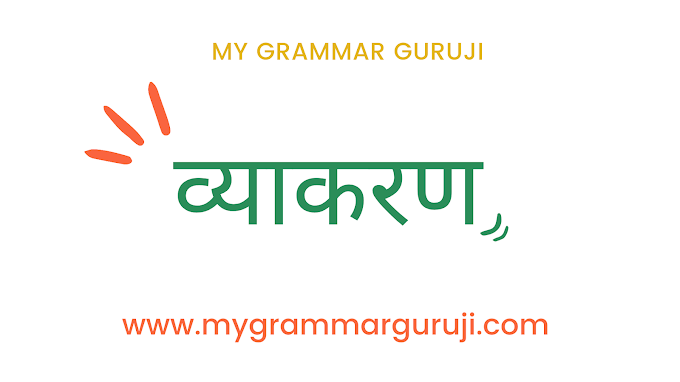PRESENT TENSE
(1) Simple Present - It is used to denote scientific facts, universal truths, processes and habitats.
ASSERTIVE RULE
Sub + V1 + s/es + object.
Example – She writes a letter.
NEGATIVE RULE
Sub + does not + v1 + object.
Example - She does not write a letter.
INTERROGATIVE RULE
Does + sub + v1 + object?
Example – Does she write a letter?
INTERROGATIVE NEGATIVE ASSERTIVE
Does + sub + not + v1 + object?
Example – Does she not write a letter?
(2) Present Continuous – It is used to express an action taking place at the time of speaking.
ASSERTIVE RULE
Sub + is/am/are + v1 + ing + object.
Example – She is writing a letter.
NEGATIVE RULE
Sub + is/am/are + not + v1 + ing + object.
Example – She is not writing a letter
INTERROGATIVE RULE
Is/am/are + sub + v1 + ing + object?
Example – Is she writing a letter?
INTERROGATIVE NEGATIVE RULE
Is/am/are + sub + not + v1 + ing + object?
Example – Is she not writing a letter?
(3) Present Perfect – It is used to show an action that started in the past and has just finished.
ASSERTIVE RULE
Sub + has/have + v3 + object.
Example- She has written a letter.
NEGATIVE RULE
Sub + has/have + not + v3 + object.
Example – She has not written a letter.
INTERROGATIVE RULE
Has/have + sub + v3 + object?
Example- Has she written a letter?
INTERROGATIVE NEGATIVE RULE
Has/have + sub + not + v3 + object.
Example – Has she not written a letter?
(4) Present Perfect Continuous – This tense shows the action which started in the past and is still continuing.
ASSERTIVE RULE
Sub + has/have + been + v1 + ing + object + Since / for + time.
Example – She has been writing a letter since the morning.
NEGATIVE RULE
Sub + has/have + not been + v1 + ing + object + Since / for + time.
Example – She has not been writing a letter since the morning.
INTERROGATIVE RULE
Has/have + sub + been + v1 + ing + object + Since / for + time.
Example – Has she been writing a letter since the morning?
INTERROGATIVE NEGATIVE RULE
Has/have + Subject + not + been + v1 + ing + object + Since / for + time.
Example – Has she not been writing a letter since the morning?
PAST TENSE
Simple Past - Used to indicate an action completed in the past. It often occurs with adverb of time. Sometimes it is used without an adverb of time.
1. Assertive Sentences
Subject + V2 + Object.
Example – She wrote a letter.
2. Negative Sentences.
Subject + didn’t + V1 + Object.
Example – She didn’t write a letter.
3. Interrogative Sentences.
Did + Subject + V1 + Object ?
Example – Did she write a letter?
4. Interrogative Negative Sentences.
Did + Subject + not + V1 + Object?
Example – Did she not write a letter?
Past Continuous Tense : Used to denote an action going on at some time in the past.
1. Assertive Sentences.
Subject + was/were +V1+ ing + Object.
Example – She was writing a letter.
2. Negative Sentences.
Subject + was/were + not + V1 + ing+ Object.
Example – She was not writing a letter.
3. Interrogative Sentences.
Was/were + Subject + V1 + ing+ Object?
Example – Was she writing a letter?
4. Interrogative Negative Sentences.
Was/were + Subject + not + V1 + ing+ Object ?
Example – Was she not writing a letter?
Past Perfect Tense - Used to describe an action completed before a certain moment in the past, usually a long time ago. If two actions happened in the past, past perfect is used to show the action that took place earlier.
1. Assertive Sentences.
Subject + had + V3 + Object.
Example – She had written a letter.
2. Negative Sentences.
Subject + had + not + V3 + Object.
Example – She had not written a letter.
3. Interrogative Sentences.
Had + Subject + V3 + Object ?
Example – Had she written a letter?
4. Interrogative Negative Sentences.
Had + Subject + not + V3 + Object?
Example – Had she not written a letter?
Past Perfect Continuous Tense : Used to denote an action that began before a certain point in the past and continued up to some time in past.
1. Assertive Sentences.
Subject + had been +V1 + ing + Object + Since / for + time.
Example – She had been writing a letter since the morning.
2. Negative Sentences.
Subject + had + not been + V1+ ing + Object + Since / for + time.
Example – She had not been writing a letter since the morning.
3. Interrogative Sentences.
Had + Subject+ been+ V1 + ing + Object + Since / for + time?
Example – Had she been writing a letter since the morning?
4. Interrogative Negative Sentences.
Had + Subject +not + been + V1 + ing + Object + Since / for + time?
Example – Had she not been writing a letter since the morning?
FUTURE TENSE
Simple future : This tense tells us about an action which has not occurred yet and will occur after saying or in future.
1. Positive / Affirmative Sentences.
Subject + Will/Shall + Verb (Ist form) + Object.
Example – She will write a letter.
2. Negative Sentences.
Subject + Will/Shall + Not + Verb (Ist form) + Object.
Example – She will not write a letter.
3. Interrogative Sentences.
Will/Shall + Subject + Verb (Ist form) + Object?
Example – Will she write a letter?
4. Interrogative Negative Sentences.
Will/Shall + Subject + Not + Verb (Ist form) + Object ?
Example – Will she not write a letter?
Future Continuous Tense
It is used to express an ongoing or continued action in future.
1. Positive / Affirmative Sentences.
Subject + Will/Shall + Be + Verb (Ist form) + Ing + Object.
Example – She will be writing a letter.
2. Negative Sentences.
Subject + Will/Shall + Not + Be + Verb (Ist form) + Ing + Object.
Example – She will not be writing a letter.
3. Interrogative Sentences.
Will/Shall + Subject + Be + Verb (Ist form) + Ing + Object?
Example – Will she be writing a letter?
4. Interrogative Negative Sentences
Will/Shall + Subject + Not + Be + Verb (Ist form) + Ing + Object ?
Example – Will she not be writing a letter?
Future Perfect Tense :-
It is used to express an action which will happen/occur in future and will be completed by a certain time in future.
We use the future perfect to say that something will be finished by a particular time in the future.
1. Positive / Affirmative Sentences.
Subject + Will/Shall + Have + Verb (3rd form) + Object.
Example – She will have written a letter.
2. Negative Sentences.
Subject + Will/Shall + Not + Have + Verb (3rd form) + Object.
Example – She will not have written a letter.
3. Interrogative Sentences.
Will/Shall + Subject + Have + Verb (3rd form) + Object ?
Example – Will she have written a letter?
4. Interrogative Negative Sentences.
Will/Shall + Subject + Not + Have + Verb (3rd form) + Object ?
Example – Will she not have written a letter?
Future Perfect Continuous Tense : It is used to talk about actions that will commence at a fix time in future and will continue for some time in future.
It is also used to talk about planned actions or actions expected to happen.
1. Positive / Affirmative Sentences.
Subject + Will/Shall + Have been + Verb (Ist form) + Ing+ Object + Since / for + time.
Example – She will have been writing a letter since the morning.
2. Negative Sentences.
Subject + Will/Shall + Not + Have been + Verb (Ist form) + Ing + Object + Since / for + time.
Example – She will not have been writing a letter since the morning.
3. Interrogative Sentences.
Will/Shall + Subject + Have been + Verb (Ist form) + Ing + Object + Since / for + time?
Example – Will she have been writing a letter since the morning?
4. Interrogative Negative Sentences.
Will/Shall + Subject +Not+ Have been + Verb (Ist form) + Ing + Object + Since / for + time?
Example – Will she not have been writing a letter since the morning?
 |
| Tap to view clear |
Let's read types of tenses in detail.







No comments:
Post a Comment
Thank you! Your comment will prove very useful for us because we shall get to know what you have learned and what you want to learn?